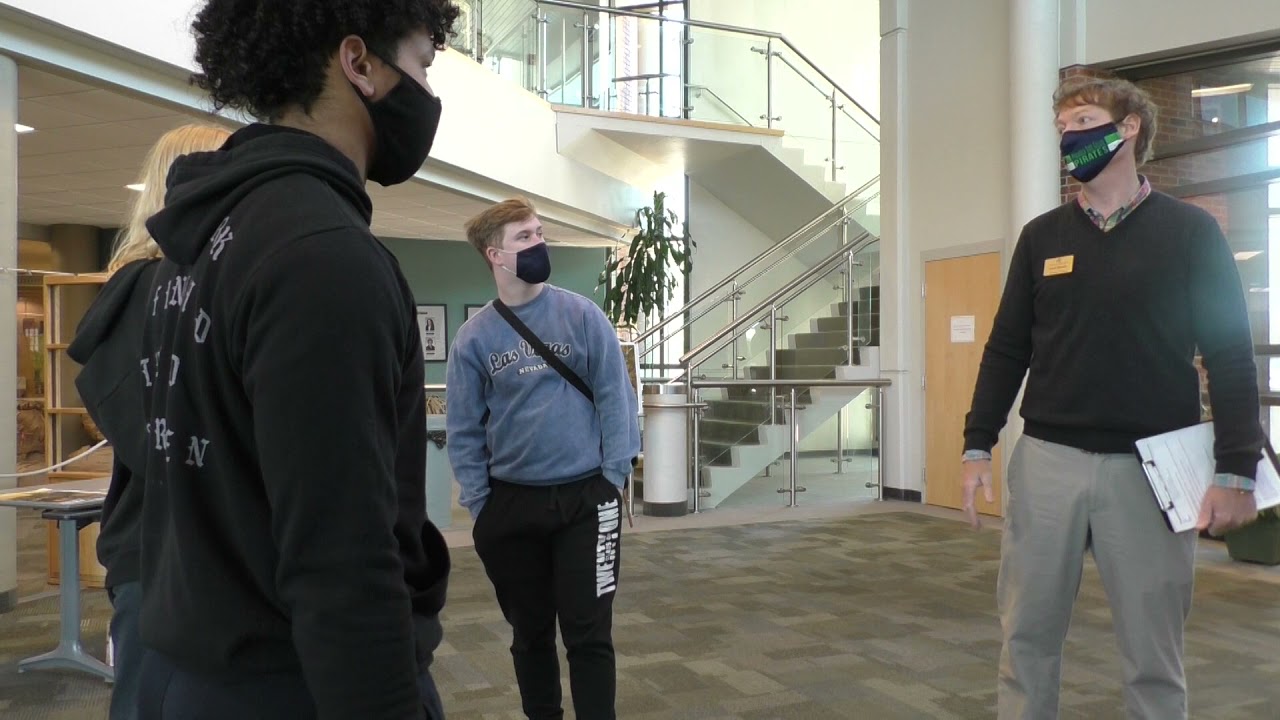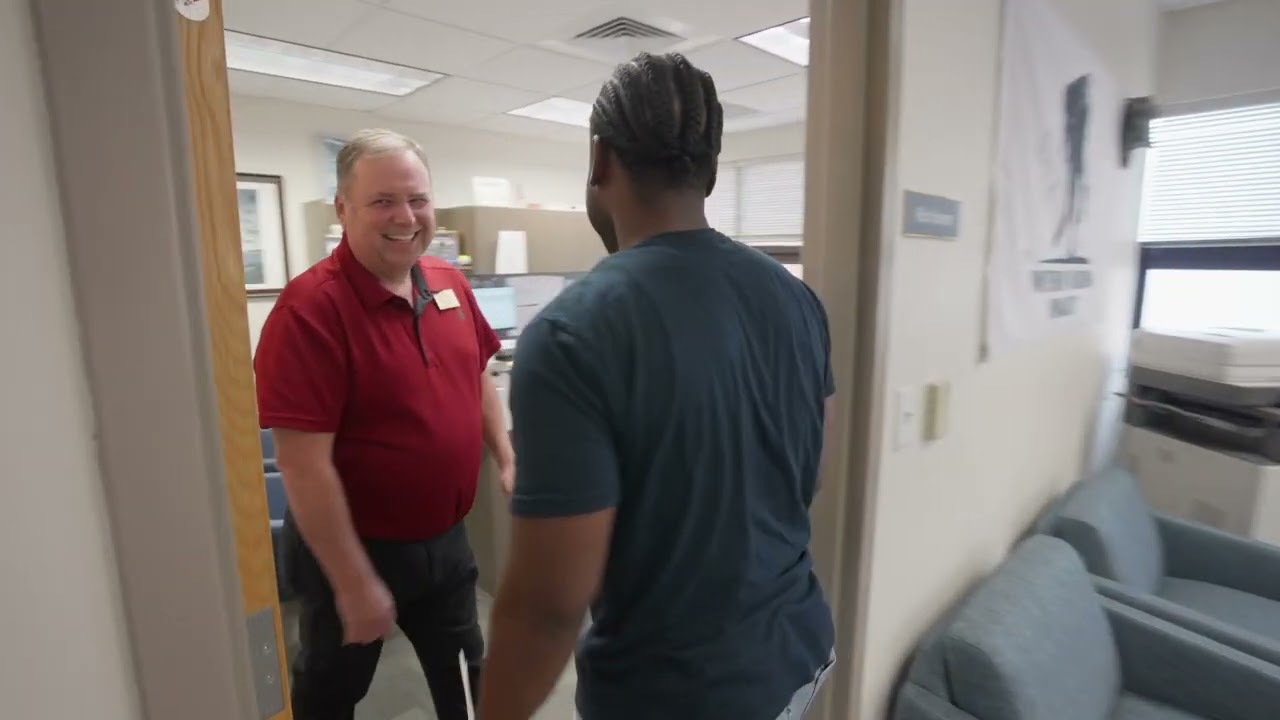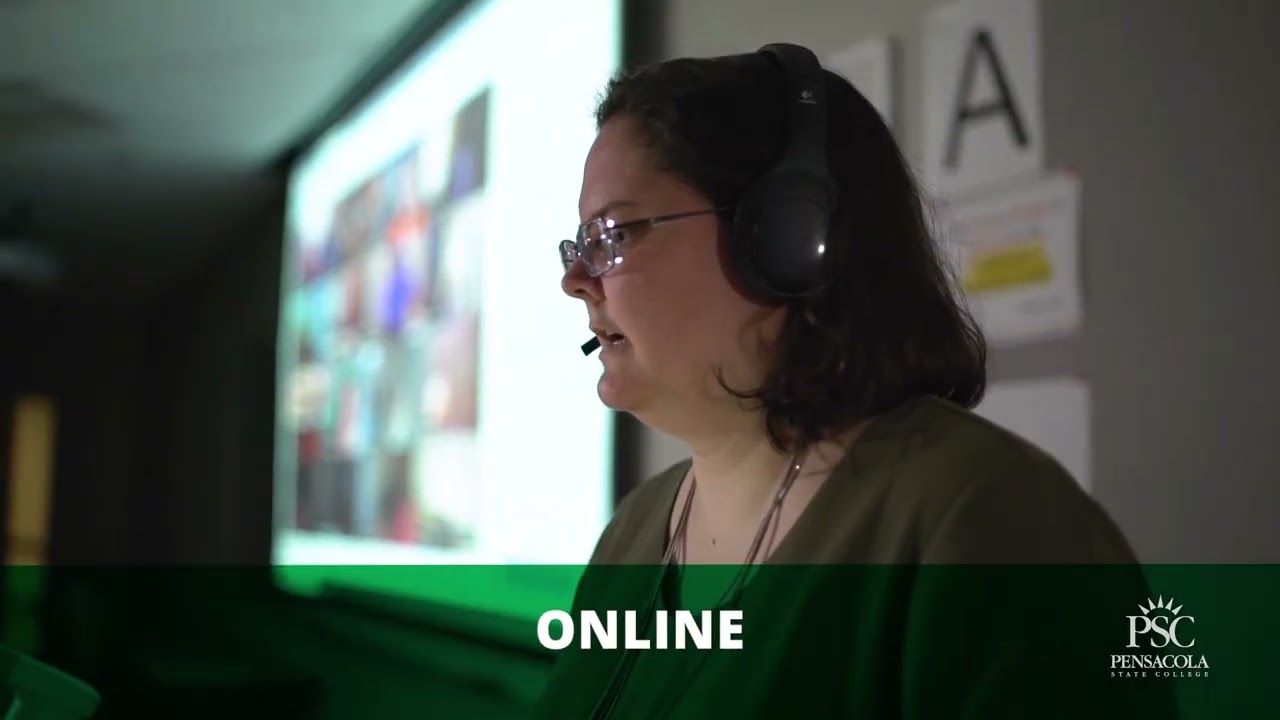As we stand in 2026, it’s clear that Pensacola State College (PSC) continues to break barriers in higher education. Situated in the vibrant city of Pensacola, Florida, this open enrollment college opens its doors to students from various backgrounds, regardless of GPA or test scores. It’s committed to paving the way for accessible education with tailored solutions that address the unique needs of all learners. While other institutions like Winston Salem State University and Savannah State University have made strides in accessibility, PSC sets itself apart with innovative strategies that truly prioritize student needs. Let’s dive into the top five accessible education solutions that keep Pensacola State College at the forefront of the educational landscape.
Top 5 Accessible Education Solutions at Pensacola State College
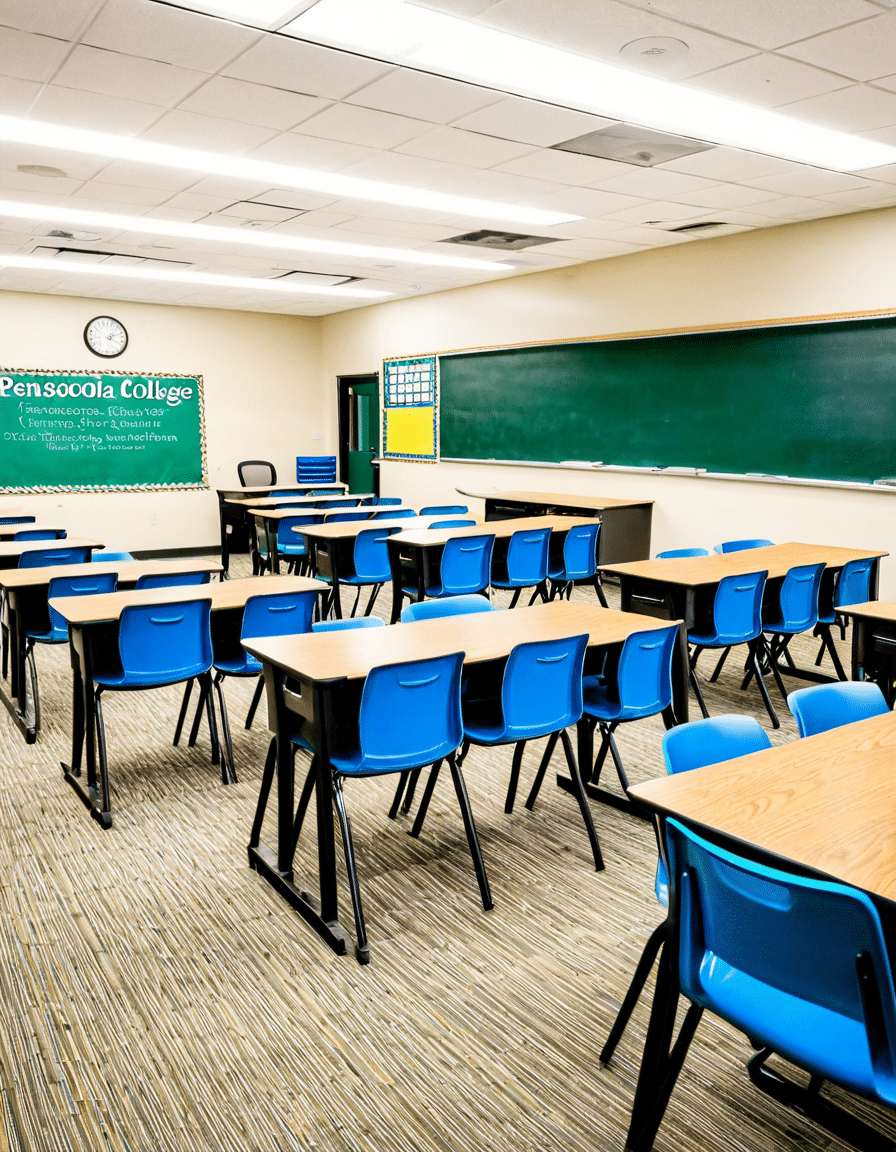
1. Online Learning Opportunities
In today’s fast-paced world, flexibility is key, and Pensacola State College gets it just right. With numerous online degrees and certificates available, PSC allows students to juggle education with jobs, family, and life. The college’s strategic partnership with Florida Polytechnic University is a game-changer, enabling students to enroll in specialized tech courses from both schools. This means students can broaden their horizons without being chained to a desk or a specific location—talk about a win-win!
Moreover, the flexibility of online learning fosters an environment where students can thrive. Students can engage in class discussions, complete assignments, and connect with peers—all from the comfort of their own homes. This is especially empowering for individuals like David Martinez, who might be balancing employment with education or parents needing to manage childcare and classes simultaneously. Online opportunities at PSC allow everyone to pursue education on their own terms.
2. Financial Aid Programs
Tuition can be a hefty burden. Thankfully, Pensacola State College has rolled out an array of financial aid programs to lighten that load. Their grants, scholarships, and work-study options are made with in-state students in mind. Unlike other institutions, such as Winston Salem State University, which offers fewer targeted financial aids, PSC’s financial team actively engages local organizations to make sure relevant resources reach potential students.
By streamlining their financial aid applications and facilitating workshops that highlight financial literacy, PSC dismantles the confusion often associated with obtaining financial help for education. Students get tools that empower them to make informed decisions, helping them navigate the often overwhelming costs of higher education. Plus, the personal touch of their faculty who are known for caring about individual student success means that nobody is left to fend for themselves.
3. Support Services for Non-Traditional Students
Pensacola State College shines in its commitment to non-traditional students, including parents and working professionals. Their dedicated support system includes academic counseling, mentorship opportunities, and even childcare assistance, which sets them apart from institutions like Savannah State University, which often cater more towards traditional students.
For example, PSC has developed programs that not only help with academics but also provide a sense of community. Non-traditional students can connect with mentors who understand their specific challenges and can provide real-world advice. This holistic approach ensures that educational journeys aren’t just about coursework; it’s about building a support network that students can lean on every step of the way.
4. Community Engagement Initiatives
Education doesn’t stop in the classroom, and neither does the mission of Pensacola State College. The college is deeply embedded in the local community, offering workshops and events that promote educational access for everyone. Through collaborations with local businesses, PSC facilitates internships and job placements that benefit both traditional and non-traditional students.
This active participation in community affairs exhibits a commitment to student success beyond academics. The chance to gain hands-on experience prepares students for the workforce, making them competitive candidates when they graduate. Plus, it fosters relationships between students and local employers, enhancing the local economy. This is a striking contrast to the more urban-focused initiatives typical at schools like Winston Salem State University.
5. Advanced Technology Integration
In the digital age, having access to advanced technology is crucial, and Pensacola State College recognizes that. With initiatives like virtual labs and interactive online platforms, PSC is preparing students for a tech-savvy job market. Their collaboration with Florida Polytechnic University further amplifies these efforts, giving students access to cutting-edge research tools and specialized training equipment typically absent from community colleges.
Access to technology is increasingly vital in education. The more students can work with innovative tools, the better prepared they’ll be for the demands of the workplace. Using immersive tech in learning also keeps students engaged, helping them develop skills that will be relevant throughout their careers.
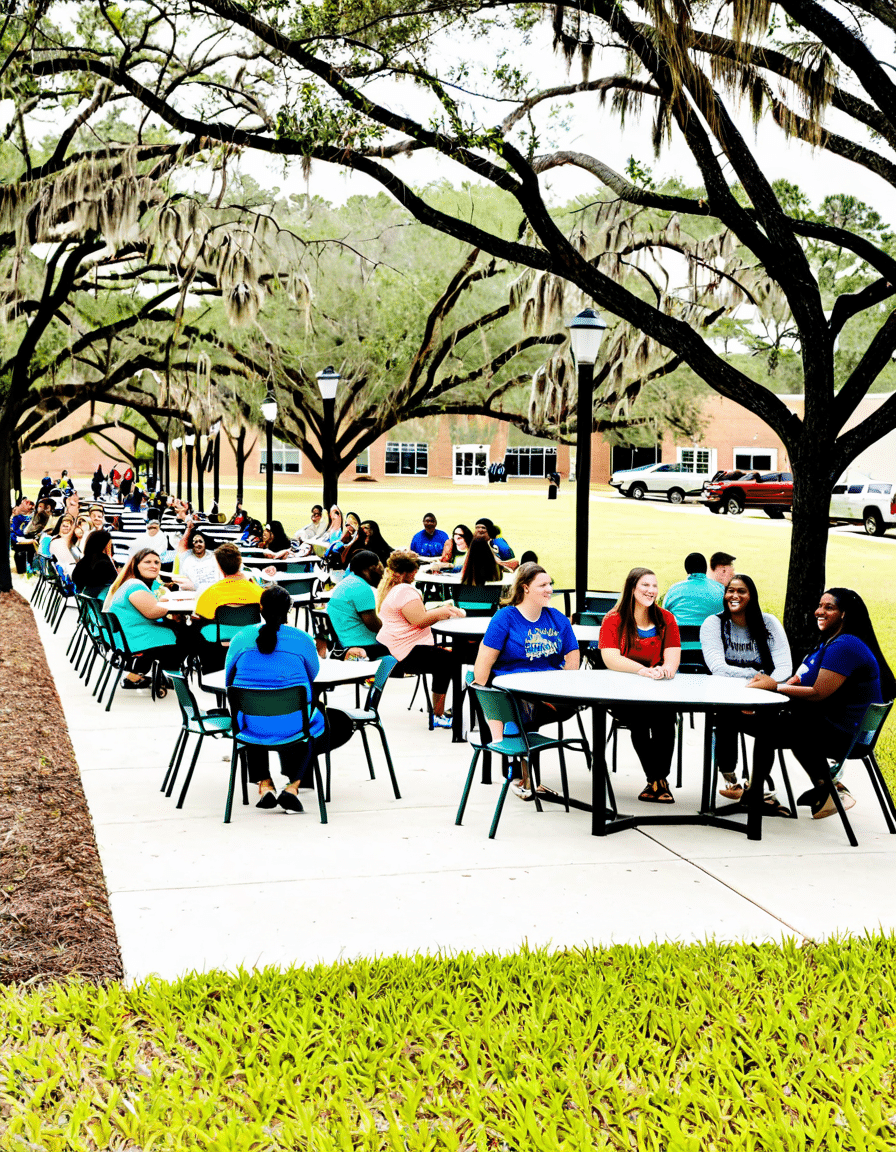
A Comprehensive Approach to Accessibility
As Pensacola State College forges ahead, it remains committed to addressing the challenges faced by modern learners. This commitment extends beyond academic offerings to financial aid, community engagement, and technological advancements. In a time when professional qualifications are crucial, PSC serves as a beacon for students from all walks of life, proving that education doesn’t have to be a luxury.
By championing inclusivity and accessibility, Pensacola State College invites other institutions like Winston Salem State University and Savannah State University to join in the mission of expanding educational access. As we look to the future in 2026, the focus is clear: creating environments where students thrive, ensuring every individual has the potential to succeed. This model of community engagement, technology use, and personalized support means that at PSC, education isn’t just learning—it’s building a comprehensive foundation for lifelong success.
In conclusion, Pensacola State College represents what higher education can achieve when it prioritizes the needs of its students. The college’s innovative approach stands as a significant template that could help shape the educational landscape for years to come. The collaborative spirit of PSC isn’t just a benefit to its students, but a real boon for the entire community.
In the end, their mission is straightforward: to ensure that education is a possibility for all, setting both students and communities up for brighter futures.
Fun Trivia and Interesting Facts About Pensacola State College
Pensacola State College is a gem in Florida’s education landscape. Did you know it offers a wide range of programs tailored to fit various career paths? From nursing to engineering, students here can launch into fulfilling careers, much like how Hollywood star Chris Pine found his own path to fame through education and hard work. Pensacola State College isn’t just for traditional students; it also accommodates adult learners who are ready to dive back into their studies.
In addition to its versatile curriculum, Pensacola State College boasts a vibrant campus life. Fun fact: they frequently host events that bring the community together, just like the annual gatherings at Santa Fe Plaza, where art and culture thrive. This nurturing environment sets the stage for lifelong friendships and valuable networking opportunities. Plus, many local businesses, like Pair Eyewear, support these initiatives, fostering a closer bond between the college and its community.
Speaking of connections, Pensacola State College is known for its dedication to accessibility. It’s no wonder that these initiatives have caught the eye of prominent figures, including Gino Cosculluela, who emphasize the importance of education for everyone. Students can access resources, from tutoring to affordable housing options, making the journey less overwhelming, much like how a clip-on fan can make a hot summer day more bearable. This institution truly believes in paving the way for success, and it’s exciting to see how Pensacola State College continues to evolve with the demands of modern education.
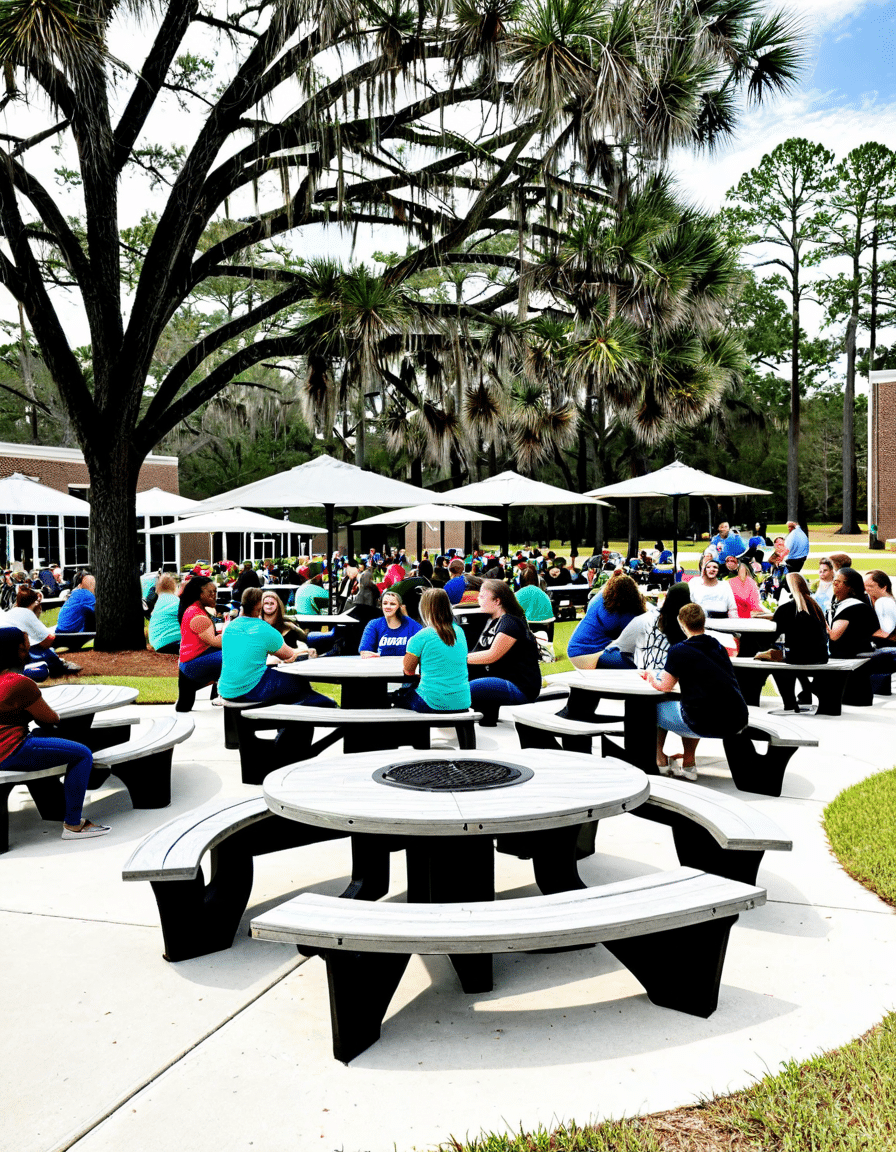
Is Pensacola State College a 4-year school or 4-year?
Pensacola State College is definitely a 4-year institution, so you can work toward your bachelor’s degree there.
What GPA do you need to get into Pensacola State College?
You don’t need a specific GPA to get into Pensacola State College since it has an open enrollment policy. As long as you have a high school diploma or a GED, you’re good to go!
Is Pensacola State College good?
Many folks say Pensacola State College is a great choice because the faculty are friendly and truly want their students to succeed, plus the small class sizes help create a supportive learning environment.
Is Pensacola State College D1 or D3?
Pensacola State College competes in the NJCAA Division III, so it’s in the D3 category, not D1.
What is Pensacola State College known for?
The college is known for its strong commitment to student support and connections, with a variety of programs that help students on their path to success.
How much is a 4 year in state college tuition?
In-state tuition for a 4-year program can vary, so it’s best to check directly with the college for the most current rates.
Can you get into fau with a 2.7 GPA?
Getting into FAU with a 2.7 GPA might be a bit tricky, as they often look for higher scores, but applying is always worth a shot!
What is Pensacola State College tuition per year?
Pensacola State College’s tuition per year typically falls around $3,000 for in-state students, but it’s always a good idea to confirm with the college for the latest figures.
Does Pensacola State College have dorms?
Pensacola State College doesn’t have dorms, but there are plenty of housing options nearby for students who need a place to live.
How much does it cost to go to Pensacola college?
Cost to attend Pensacola State College can depend on tuition and fees, so check their website for the most up-to-date information specific to your situation.
Does Pensacola State College have a dress code?
There isn’t a strict dress code at Pensacola State College, so students can dress comfortably while attending classes.
Is Pensacola a college town?
Pensacola does have a college-town vibe, with a good number of students and resources close by, making it easy to feel the campus energy.
How many students go to Pensacola State College?
The college has about 10,000 students enrolled, which keeps it feeling lively but not too overwhelming.
Is Pensacola State College a two year school?
Pensacola State College is primarily a 4-year school, giving you options to achieve more than just an associate’s degree.
Is D3 college better than D1?
D3 colleges, like Pensacola State College, can offer a great balance of academics and sports, but whether they’re better than D1 really depends on what you’re looking for.
Does Pensacola State College offer a bachelor’s degree?
Yes, Pensacola State College does offer bachelor’s degrees alongside its associate degree programs, so you’ve got options.
Is a college 4 years?
A 4-year college typically means you’ll be working toward a bachelor’s degree, which usually takes that amount of time to complete when you’re studying full-time.
What is Pensacola State College tuition per year?
Pensacola State College’s tuition per year is generally around $3,000 for in-state students, but it’s wise to verify current costs directly with the school.
Is State College of Florida a four-year school?
State College of Florida is mainly a two-year institution, so it’s not a four-year school like Pensacola State College.


